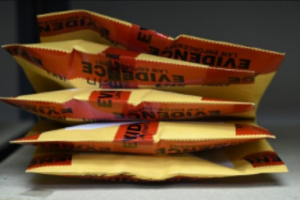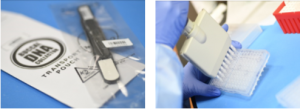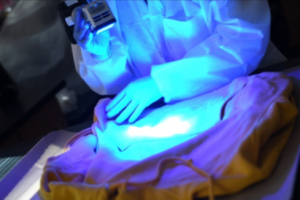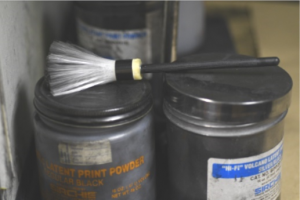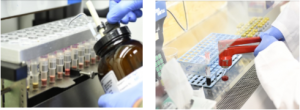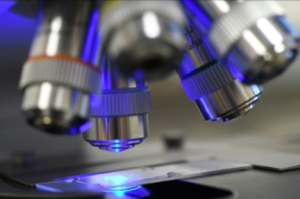Crime Laboratory Careers
The Laboratory offers a variety of scientific positions and careers at all three laboratory locations. If you are interested in working at the North Carolina State Crime Laboratory, please explore the different career options below to see what is available. For a current list of available positions, please visit the Job Opportunities page of the North Carolina Office of State Human Resources website.
Evidence Technicians
Responsible for intake of evidence from agencies all across NC and coordinate evidence transfers between regional
crime laboratories located in Raleigh, Greensboro, and Hendersonville.
Minimum Education and Experience Requirements
High school or General Educational Development diploma and three years of experience in law enforcement support activities including evidence handling protocols or an equivalent combination of training and experience.
Digital Evidence Scientists
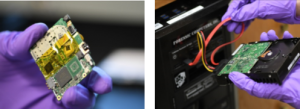 Receive and analyze computers, mobile devices, and audio/visual equipment and recordings for the presence of digital evidence.
Receive and analyze computers, mobile devices, and audio/visual equipment and recordings for the presence of digital evidence.
Education Requirements
BA, BS, or advanced degree in the following fields:
* Computer Science
* Digital Forensics
* Networking
* Information Technology
* Criminal Justice
* Cyber Technology
Degrees/backgrounds that may also be acceptable:
* Multi-Media Studies
* Forensic Science or a Natural Science Degree with Computer Science or IT Coursework
* Criminal Justice with similar employment experience
DNA Database Scientists
Use DNA profiles generated from biological evidence to search against convicted offender and arrestee DNA samples within the Combined DNA Index System (CODIS).
Education Requirements
BA, BS, or advanced degree in the following fields:
- Biology
- Microbiology
- Molecular Biology
- Biochemistry
- Genetics
- Forensic Science (Biology/DNA Concentration)
- Animal Science
- Zoology
A Master’s in Forensic Science with Biology/DNA Coursework may also be acceptable
The DNA Database Section also employs Criminal Justice Specialists/Investigators. To learn more about this position at the Laboratory, Meet a Criminal Justice Specialist/Investigator.
Drug Chemistry Scientists
Responsible for conducting chemical analysis of materials suspected to contain controlled substances which are seized as part of an investigation.
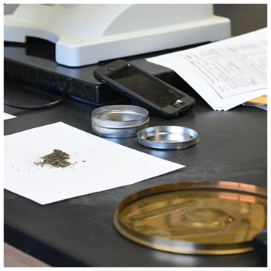 Education Requirements
Education Requirements
BA, BS, or advanced degree in the following fields:
- Chemistry
- Biochemistry
- Pharmacology
- Toxicology
- Pharmaceutical Science (Chemistry Concentration)
- Forensic Science (Chemistry/Toxicology Concentration)
A Master’s in Forensic Science with undergrad in Chemistry may also be acceptable
Firearms Scientists
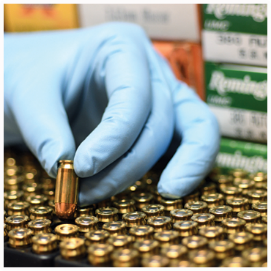 Examine and compare fired bullets and cartridge cases collected from a crime scene to determine if they were fired from a specific firearm.
Examine and compare fired bullets and cartridge cases collected from a crime scene to determine if they were fired from a specific firearm.
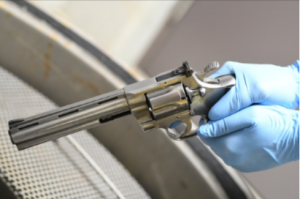 Education Requirements
Education Requirements
BA, BS, or advanced degree in the following fields:
* Biology
* Chemistry
* Forensic Science
* Physical Science (Physics)
* Mechanical Engineering
In addition to scientists, the Firearms section employees IBIS technicians that enter fired cartridge cases into the National Integrated Ballistic Information Network (NIBIN). Meet an IBIS Technician.
Forensic Biology Scientists
Identify and analyze blood and other bodily fluids in order to develop DNA profiles. These profiles are compared to samples taken from victims and other subjects involved in an investigation.
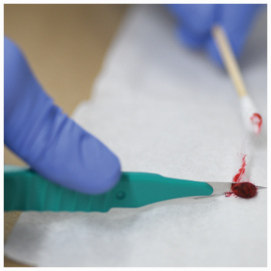 Education Requirements
Education Requirements
BA, BS, or advanced degree in the following fields:
- Biology
- Microbiology
- Molecular Biology
- Biochemistry
- Genetics
- Forensic Science (Biology/DNA Concentration)
- Animal Science
- Zoology
A Master’s in Forensic Science with Biology/DNA Coursework may also be acceptable
Latent Evidence Scientists
Develop, compare, and identify latent fingerprint, palmprint, and footprint impressions. Also examine and compare questioned footwear and tire tread impression evidence.
Meet a Latent Evidence Scientist.
Education Requirements
BA, BS, or advanced degree in the following fields:
* Biology
* Chemistry
* Biochemistry
* Forensic Science
* Physical Science (Physics)
Toxicology Scientists
Analyze biological samples, such as blood and urine, for the presence or absence of alcohol, illicit drugs, and other impairing substances.
Education Requirements
BA, BS, or advanced degree in the following fields:
- Chemistry
- Biochemistry
- Pharmacology
- Toxicology
- Pharmaceutical Science (Chemistry Concentration)
- Forensic Science (Chemistry/Toxicology Concentration)
A Master’s in Forensic Science with undergrad in Chemistry may also be acceptable
Trace Evidence Scientists
Trace evidence is the general term used to describe small pieces of evidence left at a crime scene. Trace scientists specialize in the analysis of hair, fiber, tape, paint, glass, fire debris, gunshot residue, filament, and physical match evidence.
Meet a Trace Evidence Scientist.
Education Requirements
BA, BS, or advanced degree in the following fields:
* Chemistry
* Textile Chemistry
* Physical Science (Physics)
* Biochemistry
* Forensic Science (Chemistry Concentration)
Chemistry Technicians
Chemistry Technicians work in the various sections of the Laboratory to assist in evidence handling and preparation for analysis. Chemistry Technicians are currently assigned to Digital Evidence, Drug Chemistry, Forensic Biology, Toxicology, and Trace Evidence. Education requirements vary according to the section to which the technician is assigned and will be listed in the job posting.
Management and Support
The Laboratory has various management and support positions. Use the following links to explore the various management and support positions available at the Laboratory.
Meet a Forensic Scientist Manager.
Meet a Forensic Scientist Supervisor.
Meet the Laboratory Information Management System Manager.
Meet an Administrative Specialist.

